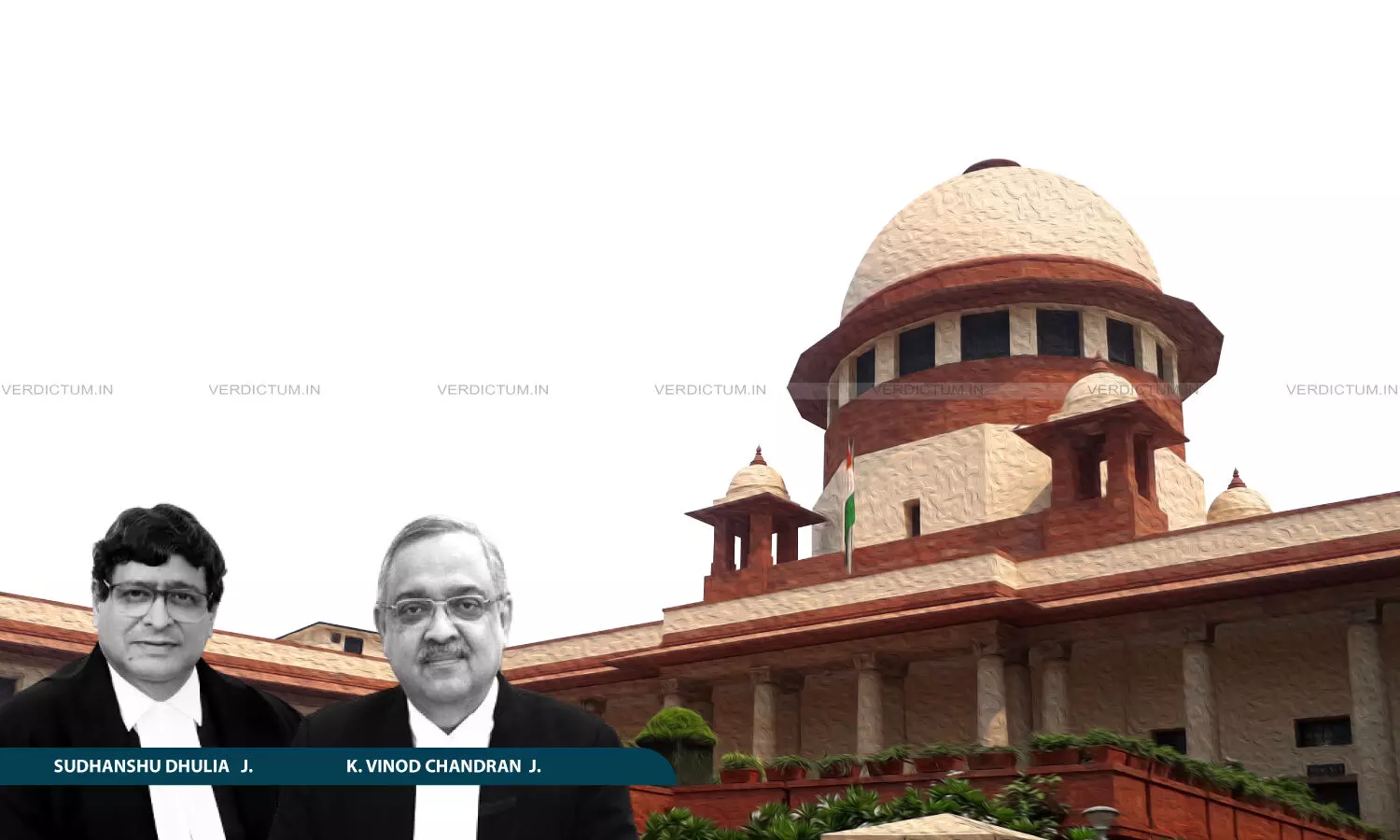
Justice Sudhanshu Dhulia, Justice K. Vinod Chandran, Supreme Court
Proof Can't Be Offered Without Specific Pleadings: Supreme Court Reverses Finding Of High Court Based On Document Produced Without Pleadings
 |
|The Supreme Court set aside the High Court’s order in a motor vehicle accident case, wherein the order of the High Court was based on material beyond the pleadings.
The Supreme Court reiterated that the pleadings and proof of such pleadings by valid evidence is the crux and core of any adjudicatory process.
The SLP was filed by the family of the deceased under the Motor Vehicle Compensation Act, 1988, challenging the finding of the High Court on the "limited liability" of the insurance company based on the policy document, even though there was no pleading to that effect.
The Bench of Justice Sudhanshu Dhulia and Justice K. Vinod Chandran held, “Pleadings and proof of such pleadings; by valid evidence led, is the crux and core of any adjudicatory process. Trite is the principle that there can be no proof offered without specific pleadings. The limited liability was not pleaded, by the insurance company, either before the Tribunal, as we see from the award made, nor in the appeal filed before the High Court as we see from the memorandum of appeal filed before the High Court.”
Case Brief
It was the case of the claimants that the deceased (brother of owner of the car) and the owner of the car along with their families were travelling in the car when the right rear tyre burst, resulting in the car going out of control. The vehicle toppled and the driver of the vehicle suffered head injury, to which he succumbed. There was hence no negligence of the driver nor can any fault be attributed to him.
The Claimants in the case were the widow, minor children and the parents of the deceased, who were granted an amount of Rs.25,82,000/- based on the income of the deceased by the Tribunal.
However, the Insurance Company filed an appeal contending that there was negligence on the part of the driver, thus absolving the insurer from the liability to indemnify, since the driver, who steps into the shoes of the owner, is the tortfeasor. Thereby, the High Court looked into the policy and found no case for imposing a statutory liability but found the comprehensive policy with additional premium, to cover only a liability to the extent of Rs.2,00,000/- as against any injury/death caused to the owner/driver.
Court’s Analysis
The Supreme Court noted that the given case was not of statutory liability, but the contractual liability of a personal accident cover which formed the basis of the claim raised. It was an admitted case that there was a personal accident cover taken, but the question was only as to whether the liability was limited or not.
Further, the Bench found that any grounds of limited liability have not been taken up either before the Tribunal or the High Court.
“When the contention of limited liability was neither taken before the Tribunal nor even in the memorandum of appeal filed, there was no reason for the High Court to look into the policy document to find limited liability”, the Court observed.
Accordingly, while allowing the appeal, the Supreme Court set aside the decision of the High Court and restored the order of the Tribunal
Cause Title: Manjudha & Ors. V. United India Assurance Company Ltd. & Anr. (Neutral Citation: 2025 INSC 896)